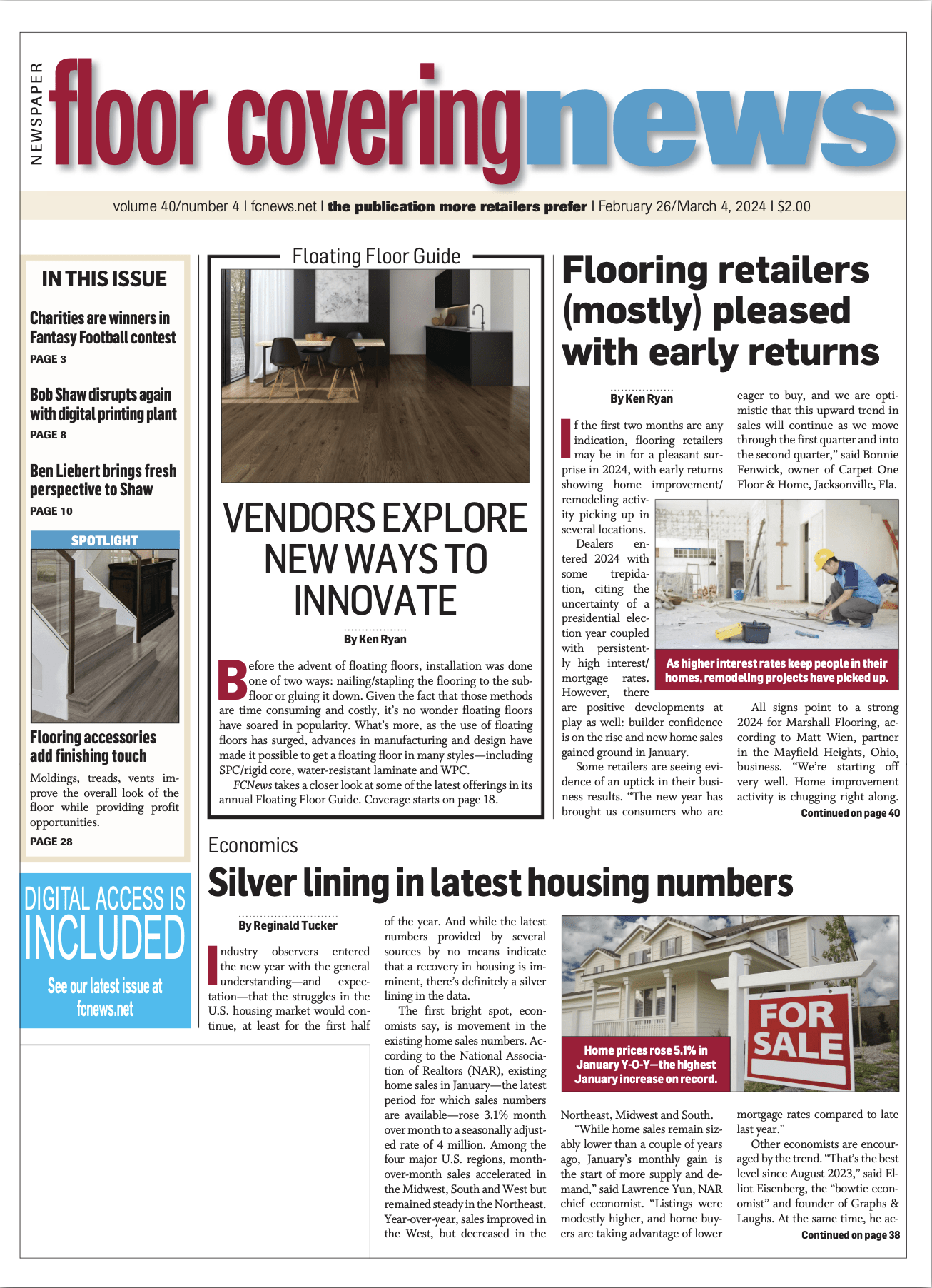Whether you’re a tile retailer or looking to diversify by cracking into the category, there are several fundamentals that are essential to success. According to the industry’s top tile suppliers, those fundamentals include: merchandising, room visualization, product selection and sustainability.
Here are the ways in which each of these fundamentals can help the retail community win big with tile.
 MERCHANDISING
MERCHANDISING
“Proper merchandising plays a pivotal role in influencing consumers to select tile over other product categories. While the decision involves multiple factors like usage, care, maintenance and application, effective merchandising can highlight these attributes, making the decision-making process clearer for both customers and retailers. By effectively merchandising tiles in-store, retailers can educate consumers about the superior qualities of tiles compared to other options, ultimately influencing them to trade up to tile surfaces.”
—Chasitiy Hurtt senior manager merchandising and marketing operations EMSER TILE
 VISUALIZERS
VISUALIZERS
“Visualizers and augmented reality (AR) tools play a major role in enticing consumers to upgrade their interiors and exteriors. These tools allow customers to virtually preview how different tile options would look in their spaces. By offering this immersive and realistic preview, retailers can em-power customers to make informed decisions and envision the enhanced value and beauty that tiles bring to their spaces. Visualization tools make it easier for consumers to justify trading up to superior tile options. This not only boosts the retailer’s sales but also fosters customer satisfaction.”
—Al Pacheco senior vice president, marketing MSI
 PRODUCT SELECTION
PRODUCT SELECTION
One major differentiator for tile is the fact that it can clad almost every surface in the home. And that’s a good thing for retailers. “If you put a counter-top in, you’re probably going to add a wall accent or mosaic in that room. If you do a shower, you’re going to do the floor, the walls, the accents. A wide breadth of product allows you to play off that initial surface and be able to offer other options. A breadth of product for the dealer then needs to be refined (via merchandising), but in a way that offers consumers everything they’re looking for.”
—Patrick Warren vice president of residential sales, dealer and showrooms DAL-TILE
 SUSTAINABILITY
SUSTAINABILITY
“From a sustainability standpoint, porcelain tiles stand out. These tiles are typically made from natural materials like clay, sand and other minerals, and can be recycled, contributing to the creation of new products. And, un-like some flooring materials that emit volatile organic compounds (VOCs) that can compromise indoor air quality, ceramic tiles are VOC-free. Tiles are resistant to mold, mildew and bacteria growth, which can be common is-sues in damp or humid areas. All this means homeowners can enjoy a safer and healthier indoor environment.”
—Lindsey Waldrep vice president, marketing CROSSVILLE
 Domestic supply partners
Domestic supply partners
“During the pandemic we had a big disruption in supply—not just in tile but everywhere. In tile a lot of people were looking to remodeling and we were one of the few markets where demand went up. In the meantime, there was also a very big impact on freight. So with supply chain disruption the dealers and distributors started to ask how they could have a more reliable supply chain and working with a domestic supplier is one way to make that happen. It is important to have a partnership with a domestic supplier that can react fast. In the U.S. around 70% of the market is imported. I think nowadays people are starting to see how important it is to have a partnership with a domestic supplier instead of relying on products that are brought from oversees.”
—Cezar Sayao, supply chain director, PORTOBELLO AMERICA

